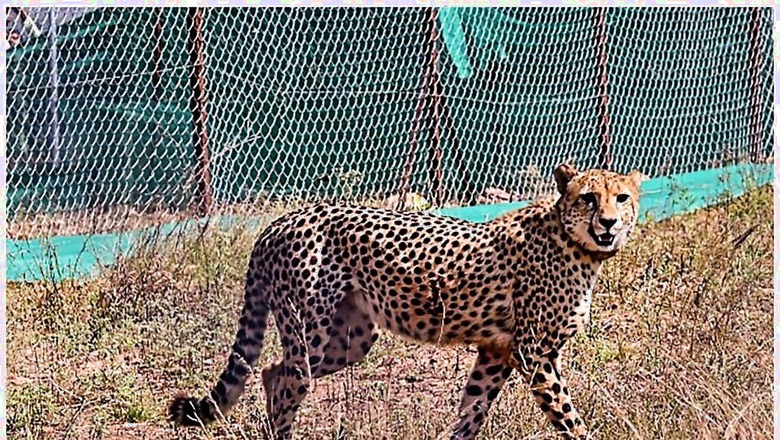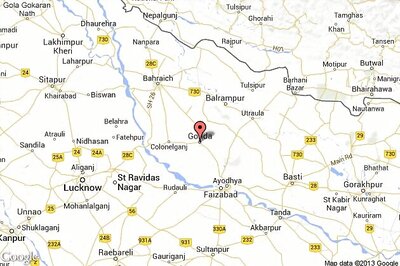
views
Another female cheetah has died at Madhya Pradesh’s Kuno National Park, taking the total death toll of the big cats in the state to nine. This includes six adult cheetahs that were flown in from Namibia and South Africa as part of the government’s ambitious wildlife experiment to restore the population of the feline in India. The cheetah named Tiblisi was found dead early on Wednesday morning.
The animal was one of the eight cats brought from Namibia last September. It was released into the wild and the forest department officials had been trying to re-capture it for weeks to examine its health. However, on Wednesday morning they found the animal dead with inflammation near its neck. The cause of death is yet to be confirmed, and a post-mortem is underway.
“While it is yet to be investigated, the cheetah seems to have had a septic shock. It had some kind of wound on its neck and the inflamed area was infested by maggots and flies. Such kind of infection can easily enter the bloodstream and can prove fatal,” said Dr Rajesh Gopal, chairman of the Cheetah Project Steering Committee.
Experts also suspect that the radio collars may have aggravated the infection.
A male cheetah died in July in a similar way with wounds on its neck, which were later linked to radio collars and the high humidity in the region because of the monsoon. Following further discussions and comments from international experts, the Cheetah Steering Committee then recommended that all of these big cats released into the wild be now brought back into bomas.
The forest staff succeeded in recapturing all the animals, except two females including Tiblisi who was still in the open.
The local staff continued to monitor the other female cats but struggled to dart them to re-capture them again.
Now only 14 cheetahs – 13 adults (7 males, 6 females) and a lone cub – remain in the bomas of the Kuno National Park, while one female cheetah is in the wild. “All the cheetahs in the bomas are healthy and their health is being regularly monitored by the team of wildlife veterinarians and the Namibian experts,” said the state forest department in a statement.
Six adult cheetahs and three cubs have died in the past six months following their historic translocation to India. The grand wildlife experiment was kicked off in September 2022 when the first batch of eight cheetahs was flown in from Namibia. The animals were released into the wild by Prime Minister Narendra Modi. This was followed by a second batch of 12 cheetahs from South Africa this February.
The first cheetah death (Sasha) was reported in March, followed by male cheetah Uday’s death in April due to a cardio-pulmonary failure. Three more adult cats died – one in May and two in July. In addition, three cubs had also succumbed to the intense summer conditions in May.

















Comments
0 comment